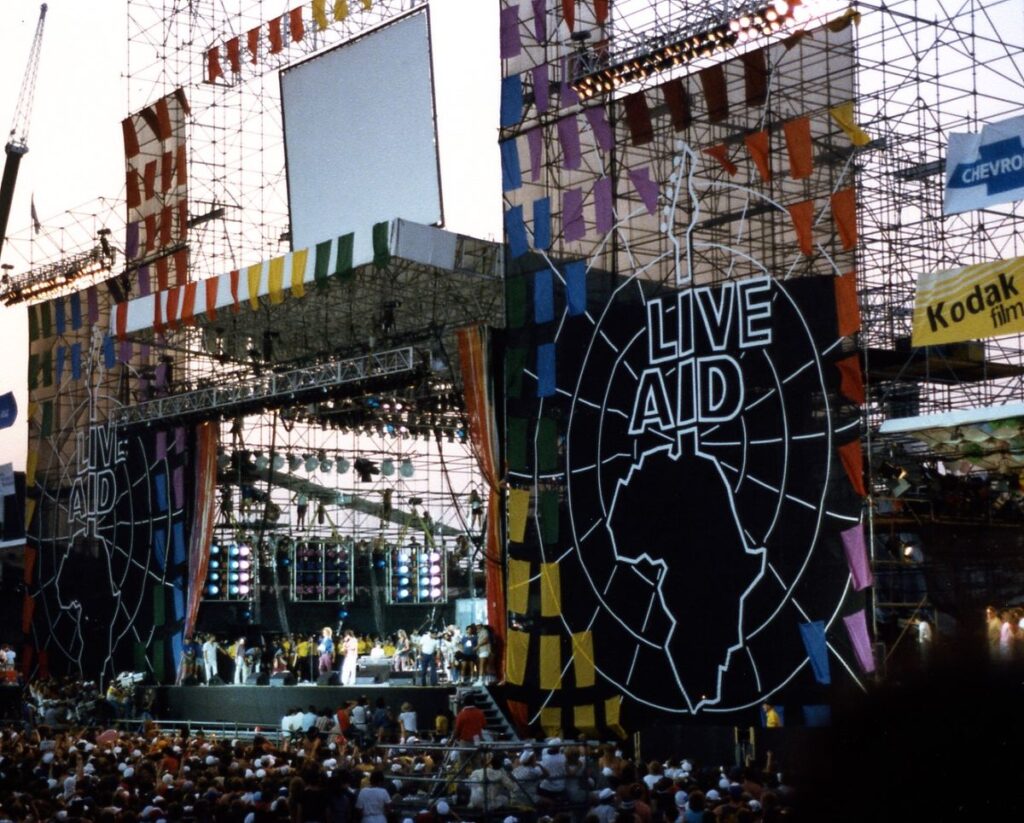
Introduction
Live Aid, the historic concert that took place on July 13, 1985, remains one of the most significant musical events in history. Organized by Bob Geldof and Midge Ure, it aimed to raise funds for famine relief in Ethiopia, highlighting the power of music in activism and global solidarity. The event not only showcased some of the biggest names in music at the time but also brought attention to the urgent humanitarian crisis.
The Event
Live Aid was held simultaneously at two iconic venues – Wembley Stadium in London and John F. Kennedy Stadium in Philadelphia. The concert featured legendary performances from artists like Queen, U2, David Bowie, and Led Zeppelin, among many others. The event’s scale was unprecedented; it is estimated that over 1.5 billion people watched the concert worldwide.
The concert was notable for its emotional performances, including Queen’s electrifying set, which is often regarded as one of the greatest live performances in rock history. The dual-location format allowed for a diverse lineup of artists representing various musical genres, thereby appealing to a broad audience.
Fundraising Efforts
Live Aid was not just a concert; it was a global campaign that raised over $125 million for famine relief in Ethiopia. The funds were used to provide food, medicine, and infrastructure to those affected by the famine. The success of Live Aid demonstrated the capacity of the music community to influence social issues and mobilize support quickly.
In addition to immediate aid, the concert spurred ongoing efforts for raising awareness about global poverty and humanitarian crises. Many artists involved in the event continued their activism long after the concert ended, influencing generations to utilize music as a tool for change.
Conclusion
Live Aid is often remembered not only for its incredible lineup and record-breaking viewership but also for its profound impact on the global community. It set a precedent for musical activism, prompting future events such as Live 8 in 2005 and other benefit concerts aimed at addressing various issues around the world.
The legacy of Live Aid continues to inspire artists and fans alike, demonstrating that music can indeed transcend borders and rally people for a common cause. As we reflect on its significance, it is vital to acknowledge how entertainment can serve as a catalyst for social change and humanitarian aid, fostering a shared sense of responsibility among a global audience.



